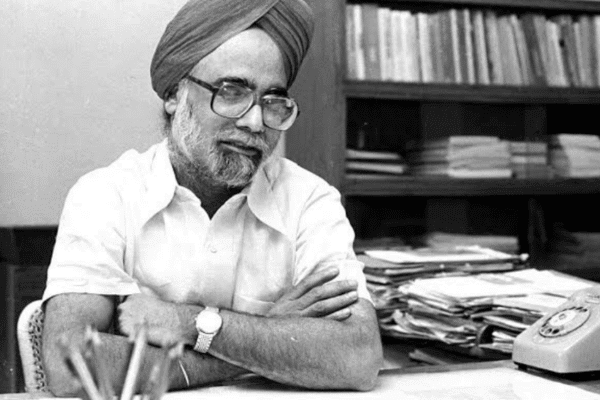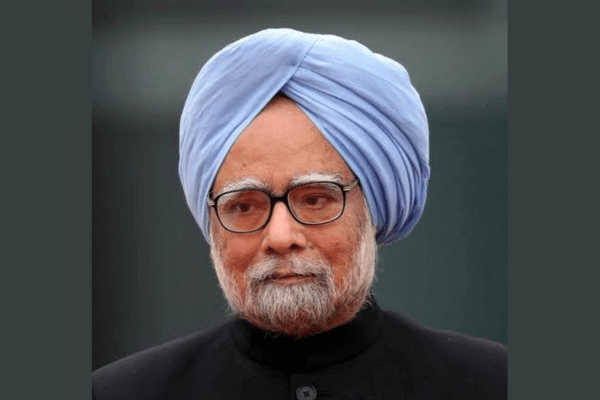Former Prime Minister Dr Manmohan Singh, renowned economist and architect of India’s economic reforms, passed away on Thursday at the age of 92. He was admitted to the All India Institute of Medical Sciences (AIIMS) following a deterioration in his health due to age related medical conditions.
Dr Singh, who served as the country’s Prime Minister from 2004 to 2014, was known for his transformative role in steering India’s economy through a period of significant liberalisation.
As the first Sikh to hold the office of PM, Dr Singh’s leadership was often credited for steering India through a period of significant economic transformation.
Manmohan Singh’s political journey began in 1971 when he was appointed as an Economic Advisor in the Ministry of Commerce. He later acquired pivotal roles like Chief Economic Advisor (CEA) and Secretary in the Ministry of Finance.

After Congress’ victory in the Lok Sabha elections in 2004, Congress leader Sonia Gandhi appointed Dr Singh as the Prime Minister. Dr Singh’s regime was focused on inclusive growth, poverty alleviation, and development in various sectors such as education, food security, and employment. His policies paved the way for economic expansion, lifting millions out of poverty.
Dr Singh was elected again in 2009. However, his second term was full of turmoil, as it was marred by challenges such as inflation, corruption scandals, and criticisms surrounding administrative inefficiencies. Despite these controversies, his government continued to make significant strides in economic and social policy.
Dr Singh’s tenure as Prime Minister was marked by several landmark reforms and initiatives.
Manmohan Singh Ji led India with immense wisdom and integrity. His humility and deep understanding of economics inspired the nation.
My heartfelt condolences to Mrs. Kaur and the family.
I have lost a mentor and guide. Millions of us who admired him will remember him with the… pic.twitter.com/bYT5o1ZN2R
— Rahul Gandhi (@RahulGandhi) December 26, 2024
His government passed legislation guaranteeing food, education, employment, and information rights for citizens. His leadership also solidified India’s role as a prominent player in the global economy, with reforms that helped the country navigate a rapid phase of growth.
Dr Singh was later honoured with the Padma Vibhushan, India’s second-highest civilian award, in 1987, recognising his contributions to economic policymaking.
His death has left the nation in mourning, with leaders from all political parties and across the world paying tribute to his legacy.
Undoubtedly, history shall judge you kindly, Dr. Manmohan Singh ji!
With the passing of the Former Prime Minister, India has lost a visionary statesman, a leader of unimpeachable integrity, and an economist of unparalleled stature. His policy of Economic Liberalisation and… pic.twitter.com/BvMZh3MFXS
— Mallikarjun Kharge (@kharge) December 26, 2024
Prime Minister Narendra Modi expressed his condolences over X.
“India mourns the loss of one of its most distinguished leaders. Rising from humble origins, he rose to become a respected economist. He served in various government positions as well, including as Finance Minister, leaving a strong imprint on our economic policy over the years. His interventions in Parliament were also insightful. As our Prime Minister, he made extensive efforts to improve people’s lives,” he wrote.
The Indian National Congress party recently announced that it would cancel all programs for 7 days in honour of Dr Manmohan Singh.
Congress General Secretary (Organisation) K.C. Venugopal wrote on X, “As a mark of respect for the departed former Prime Minister, Dr Manmohan Singh ji, all official programmes of the Indian National Congress, including the Foundation Day celebrations stand cancelled for the next seven days.”
“This includes all the agitational and outreach programs. Party programmes will resume on 3rd January 2025. The party flag will be flown at half-mast during this period of mourning,” he says.
Dr Singh is survived by his wife, Gursharan Kaur, and their three daughters.
Whilst his death marks the end of an era in Indian politics, his leadership and legacy will continue to inspire future generations.
READ MORE: Four Corners’ ‘Infiltrating Australia: India’s Secret War’




